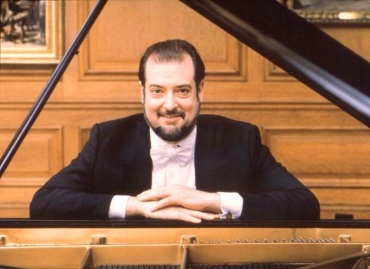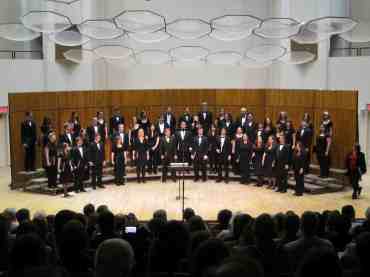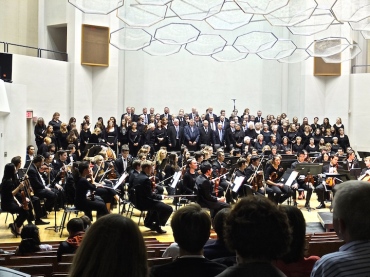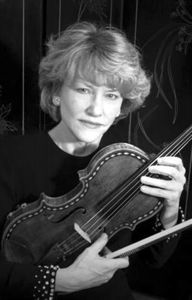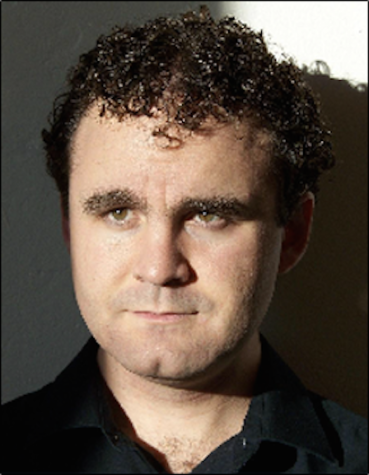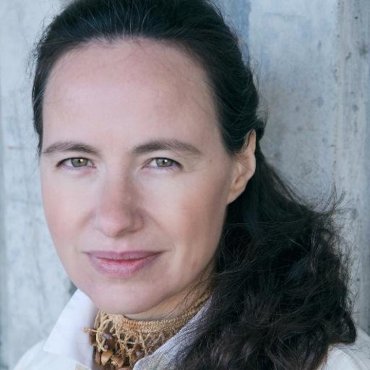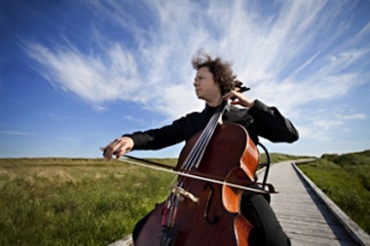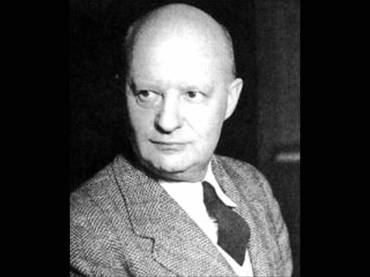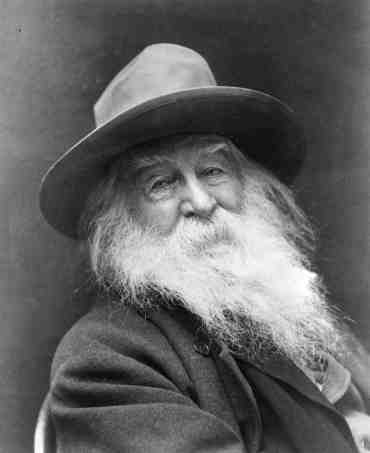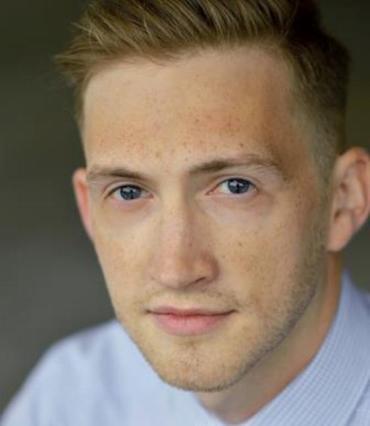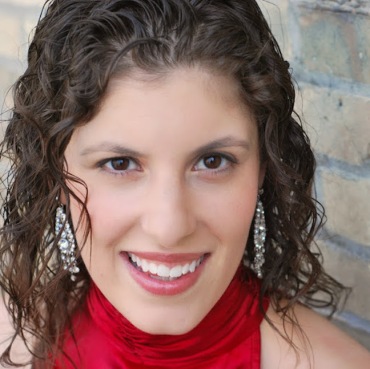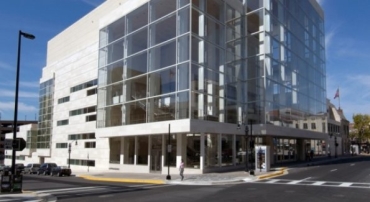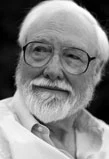The Well-Tempered Ear
Classical music: Today is Sept. 11, 2020. Here is music to mark the 19th anniversary of the terrorist attacks during the coronavirus pandemic. What would you choose?
2 Comments
PLEASE HELP THE EAR. IF YOU LIKE A CERTAIN BLOG POST, SPREAD THE WORD. FORWARD A LINK TO IT OR, SHARE IT or TAG IT (not just “Like” it) ON FACEBOOK. Performers can use the extra exposure to draw potential audience members to an event. And you might even attract new readers and subscribers to the blog.
CORRECTION: The Virtual Gala fundraiser for the Handel Aria Competition started last night, and will end on Thursday, Oct. 1 – NOT on Oct. 11, as mistakenly stated in yesterday’s blog headline. Here is a link with more information: https://welltempered.wordpress.com/2020/09/10/classical-music-the-worldwide-virtual-and-online-gala-fundraiser-for-the-handel-aria-competition-starts-today-and-runs-through-oct-10-donations-will-be-matched-up-to-2000/
By Jacob Stockinger
Today marks 19 years since the terrorist attacks of Sept. 11, 2001.
For the basic information, here is a Wikipedia summary: https://en.wikipedia.org/wiki/September_11_attacks
There are many ways to remember and honor the dead and the injured in New York City, the Pentagon in Washington, D.C., and Shanksvillle, Pennsylvania. And in past years, The Ear has offered many different ones.
There are the well-known requiems by Mozart, Brahms, Verdi and Faure; passions by Bach; and other works.
There are also the pieces especially composed for the commemoration, including “On the Transmigration of Souls,” a Pulitzer Prize-winning work by John Adams that incorporates police tapes and phone calls, and Steve Reich’s “WTC 9/11.”
But this year there is the coronavirus to deal with and complicate the commemorations.
Here is a story from NBC News about how the official commemorations, both real and virtual, will be affected by the pandemic.
And somehow in such circumstances, it feels like back to basic is a good approach.
So here, in the YouTube video at the bottom, is the most universal piece of mourning that The Ear knows: American composer Samuel Barber’s “Adagio for Strings” as played by Leonard Slatkin conducting the Detroit Symphony Orchestra.
It serves to mark 9/11 but perhaps also the more than 190,000 American deaths so far from the Covid-19 pandemic.
You can find other versions and other pieces on YouTube:
What piece would you want to hear to mark this sad and solemn occasion?
The Ear wants to hear.
Tags: #AdagioforStrings, #Al-Queda, #AmericanComposer, #BacktoBasics, #BlogPost, #BlogPosting, #ChoralMusic, #CoronavirusPandemic, #COVID-19, #DetroitMichigan, #DetroitSymphonyOrchestra, #FacebookPost, #FacebookPosting, #FaureRequiem, #Flight93, #GabrielFaure, #GeorgeFridericHandel, #GiuseppeVerdi, #HandelAriaCompetition, #JacobStockinger, #JohannesBrahms, #JohannSebastianBach, #JohnAdams, #LeonardSlatkin, #NBCNews, #NewYorkCity, #OntheTransmigrationofSouls, #PulitzerPrize, #SamuelBarber, #September11, #ShanksvillePennsylvania, #SteveReich, #TerroristAttack, #TheEar, #ThePentagon, #TwinTowers, #VirtualConcert, #WashingtonD.C., #Wikipediaentry, #WolfgangAmadeusMozart, #WorldTradeCenter, #YouTubevideo, 2001, 9/11, Adagio for Strings, Adams, Al-Qaeda, American, approach, Arts, attack, audience, Bach, back, back to basics, Barber, Baroque, basics, blog, choose, choral music, circumstances, commemorate, complicate, Concert, conductor, coronavirus, correction, D.C., dead, deadly, death, Detroit, Detroit Symphony Orchestra, Facebook, Faure, Flight 93, fundraiser, Gabriel Fauré, gala, George Frederic Handel, Giuseppe Verdi, good, Handel, Handel Aria Competition, hear, honor, information, injured, injuries, Jacob Stockinger, Johann Sebastian Bach, Johannes Brahms, John Adams, last, Leonard Slatkin, like, link, Madison, marks, Michigan, modern, mourning, Mozart, Music, NBC News, New York City, night, occasion, October, official, On the Transmigration of Souls, online, Orchestra, pandemic, Pennsylvania, Pentagon, performer, piece, post, posting, pre-recorded, Pulitzer Prize, real, Reich, remember, Requiem, sad, Samuel Barber, Sept. 11, September 11, Shanksville, share, solemn, start, Steve Reich, summary, symphony, tag, terror, terrorist, The Ear, today, Twin Towers, United States, Verdi, virtual, vocal music, want, Washington, Wikipedia, Wisconsin, Wolfgang Amadeus Mozart, work, World Trade Center, WTC, years, yesterday, YouTube
Classical music: This afternoon is your last chance to hear the all-Russian program by violinist Rachel Barton Pine and the Madison Symphony Orchestra. Here are two very positive reviews and a more critical one
9 Comments
PLEASE HELP THE EAR. IF YOU LIKE A CERTAIN BLOG POST, PLEASE SPREAD THE WORD. FORWARD A LINK TO IT OR, SHARE IT or TAG IT (not just “Like” it) ON FACEBOOK. Performers can use the extra exposure to draw potential audience members to an event. And you might even attract new readers and subscribers to the blog.
By Jacob Stockinger
This afternoon, at 2:30 p.m. in Overture Hall, is your last chance to hear the highly praised all-Russian program by the Madison Symphony Orchestra (below, in a photo by Peter Rodgers), conducted by music director John DeMain.
The guest soloist is the critically acclaimed, virtuoso violinist Rachel Barton Pine (below) from Chicago.
For more details about the program, the performers, program notes and tickets, go to: https://welltempered.wordpress.com/2019/10/17/classical-music-this-weekend-guest-violinist-rachel-barton-pine-solos-in-an-all-russian-program-of-khachaturian-prokofiev-and-shostakovich-by-the-madison-symphony-orchestra/
The concert features the Violin Concerto in D Minor by Aram Khachaturian; the “Lieutenant Kijé Suite” film score by Sergei Prokofiev; and the Symphony No. 9 by Dmitri Shostakovich.
From the previews, the thematic program – all works were composed in the Soviet Union under the threatening shadow of the terrorist-dictator Josef Stalin (below) — sounded promising.
And it turns out that that the promise was, to varying degrees, fulfilled.
Here are two very positive reviews of the concert.
The first is by Michael Muckian (below), who has taken over reviewing duties at Isthmus for the now retired critic John W. Barker: https://isthmus.com/music/wildrussianride/
Here is a review by Greg Hettmansberger (below): https://whatgregsays.wordpress.com/2019/10/19/madison-symphony-triumphs-over-the-soviets/
And here is a somewhat more critical review by UW-Madison music graduate Matt Ambrosio (below) written for The Capital Times: https://madison.com/ct/entertainment/arts-and-theatre/review-rachel-barton-pine-gives-memorable-performance-with-the-mso/article_61f34b8d-8dd8-514d-8e75-576a47826a04.html
What did you think of the programs, the performers and the performance?
Which critic do you most agree with?
The Ear wants to hear.
Tags: #All-Russian, #AramKhachaturian, #BaltimoreSymphonyOrchestra, #BlogPost, #BlogPosting, #CapTimes, #ClassicalMusician, #CriticallyAcclaimed, #DmitriShostakovich, #FacebookPost, #FacebookPosting, #FilmScore, #FilmSoundtrack, #GregHettmansberger, #GuestArtist, #GuestSoloist, #IsthmusMagazine, #IsthmusNewspaper, #JohnDeMain, #JohnW.Barker, #JosefStalin, #LieutenantKijé, #MadisonMagazine, #MadisonSymphonyOrchestra, #MattAmbrosio, #MeadWitterSchoolofMusic, #MichaelMuckian, #ModernComposers, #ModernMusic, #MovieMusic, #MusicCritic, #MusicReview, #OvertureCenter, #OvertureHall, #ProgramNotes, #RachelBartonPine, #RussianMusic, #SergeiProkofiev, #Sovietcomposer, #SovietUnion, #StalinistTerror, #Sundayafternoon, #TheCapitalTimes, #TheEar, #UniversityofWisconsin-Madison, #ViolinConcerto, #WhatGregSays, acclaimed, afternoon, agree, Aram Khachaturian, audience, blog, Cap Times, chance, Chiacgo, Chicago, Classical music, classicalmusic, composer, critic, critical, critically acclaimed, criticism, details, dictator, Dmitri Shostakovich, duties, duty, event, exposure, Facebook, film, Film score, forward, fulfilled, Greg Hettmansberger, guest, Isthmus, John DeMain, John W. Barker, Josef Stalin, Khachaturian, Lieutenant Kijé, like, link, Madison Magazine, Madison Symphony Orchestra, magazine, Matt Ambrosio, Mead Witter School of Music, member, Michael Muckian, modern, movie, movie music, Music, music critic, music review, new, Newspaper, Overture Center, Overture Hall, performer, positive, post, posting, preview, program, program notes, Prokofiev, promise, promising, Rachel Parton Pine, reader, review, reviewer, Russia, Sergei Prokofiev, share, Shostakovich, solo, soloist, soundtrack, Soviet Union, spread, subscriber, Suite, Sunday, tag, terror, terrorist, The Capital Times, The Ear, thematic, theme, think, threat, threatening, ticket, tickets, University of Wisconsin–Madison, USSR, UW-Madison, Violin, Violin concerto, violinist, virtuoso, What Greg Says, word, you
Classical music: Grammy winners Takacs Quartet and pianist Garrick Ohlsson perform a MUST-HEAR concert of Mozart, Brahms and Shostakovich this Sunday night at the Wisconsin Union Theater. Plus, you can hear a FREE performance of string music by Johan Halvorsen and Philip Glass this Friday at noon
Leave a Comment
ALERT: This week’s FREE Friday Noon Musicale at the First Unitarian Society of Madison, 900 University Bay Drive, features the Passcaglia Duo of Norwegian composer Johan Halvorsen and String Quartet No. 5 by American contemporary composer Philip Glass.
Performers are violinists Kaleigh Acord, Elspeth Stalter and Ela Mowinski; violist Shannon Farley; and cellist Morgan Walsh. The concert, which runs from 12:15 to 1 p.m., will be streamed live on the Facebook page of Noon Musicales.
By Jacob Stockinger
Separately and together, The Ear loves piano and strings.
So you can imagine the appeal of a concert that will take place this Sunday night at 7:30 p.m. in Shannon Hall at the Wisconsin Union Theater.
That’s when the veteran and venerable Takacs Quartet (below) and acclaimed pianist Garrick Ohlsson will join forces in a terrific all-masterpiece program.
The concert has all the makings of a MUST-HEAR event for chamber music fans.
The award-winning Takacs Quartet, founded 42 years ago in Hungary and widely recorded and honored, will play two string quartets.
The late String Quartet No. 21 in D Major, K. 575, by Wolfgang Amadeus Mozart (below), is the first of the composer’s three so-called “Prussian” quartets.
Known for a more relaxed style than the earlier “Haydn” quartets by Mozart, the Prussian quartets were composed for the King of Prussia, Friedrich Wilhelm II (below), who was a talented amateur cellist.
The Takacs will also perform the seven-movement String Quartet No. 11 in F minor by Dmitri Shostakovich (below). It is one of The Ear’s very favorite of the 16 quartets written by the Russian composer who endured the torments and treacheries of the Stalinist terror in the Soviet Union.
Then Garrick Ohlsson (below) will join in for the Piano Quintet in F Minor by Johannes Brahms. It is one of the four or five crowning quintets for piano and string quartet.
The Ear loves the playing of both artists and the program should be deeply interesting and moving. The Takacs possesses a mastery of many styles and has recorded numerous quartets by Haydn, Schubert, Schumann, Brahms, Smetana, Janacek and, more recently, by Dvorak as well as a terrific complete cycle of the 16 Beethoven quartets.
But the Takacs has recorded little Mozart (two string quintets) and little Shostakovich (one quartet and a piano quintet), so The Ear looks forward to hearing the quartet’s take on those composers.
The Takacs has recorded the Brahms Piano Quintet, but with British pianist Stephen Hough and Hungarian pianist Andras Schiff, but that work too should be a memorable performance with Ohlsson, the only American ever to win the International Chopin Piano Competition. (You can hear the energetic and lyrical opening movement from the Takacs-Hough recording in the YouTube video at the bottom, which has an intriguing and colorful bar graph to emphasize the structure.)
Tickets are $10-$47. For more information about purchasing tickets plus a video and more background about the artists, go to:
Tags: amateur, American, András Schiff, Arts, bar, bar graph, Beethoven, British, cellist, Cello, Chamber music, Chopin International Piano Competition, Classical music, Compact Disc, composer, cycle, duo, Dvorak, event, Facebook, fan, First Unitarian Society of Madison, Franz Schubert, Frederick, free, Friday, Friedrich Wilhelm II, Garrick Ohlsson, Grammy, graph, Haydn, hear, Hungary, interesting, Jacob Stockinger, Janacek, Johan Halvorsen, Johannes Brahms, live, Ludwig van Beethoven, Madison, Madison Symphony Orchestra, masterpiece, moving, Mozart, Music, musicale, night, noon, Norway, Norwegian, page, passacaglia, Philip Glass, Piano, Piano Quintet, program, Prussia, Prussian, quintet, relaxed, Russia, Russian, Schumann, Shannon Hall, Smetana, Soviet, Soviet Union, Stalin, Stephen Hough, stream, String quartet, string quintet, strings, style, Sunday, terror, terrorist, torment, U.S., UK, United Kingdom, United States, University of Wisconsin–Madison, US, USSR, venerable, Veteran, Viola, Violin, Wisconsin, Wisconsin Union Theater, Wolfgang Amadeus Mozart, YouTube
Classical music: UW oboist Aaron Hill performs world premieres and little known composers in a FREE recital Sunday afternoon
1 Comment
By Jacob Stockinger
This is Homecoming weekend at the University of Wisconsin-Madison, and it is busy on many counts, including several classical music concerts in the city on Sunday afternoon.
But one of the more intriguing is a FREE recital at 3 p.m. in Mills Hall by UW-Madison Professor Aaron Hill (below), who teaches oboe and also performs in the Wingra Woodwind Quintet.
Hill will be joined by collaborative pianist Daniel Fung (below), who is also a vocal coach at the Mead Witter School of Music at the UW-Madison.
Particularly noteworthy is the number of world premieres and relatively unknown contemporary composers on the program.
Here is the program:
“Poem,” for oboe and piano (1953) by Marina Dranishnikova (1929-1994, below). (You can hear it in the YouTube video at the bottom.)
Oboe Sonata (1947) by Jean Coulthard (1908-2000)
- Gently Flowing
- Sicilienne
- Allegro
Intermission
* Soliloquies (2013) by Andre Myers (b. 1973)
- To be or not to be
- There’s Rosemary, that’s for remembrance
- In the Month of May
- Spring Discourse
* world premiere performance
* After Manchester (2017) Aaron Hill and Michael Slon (b. 1982 and 1970, respectively) * world premiere performance
Four Personalities (2007) Alyssa Morris (b. 1984)
- Yellow
- White
- Blue
- Red
Here are some program notes by Aaron Hill:
“This program highlights five different ways to program previously unfamiliar music, as explained below.
“Poem” by Marina Dranishnikova came to me through our local community. Oliver Cardona, currently a junior music major at UW-Madison, initially brought it to my attention. The work was discovered and edited by my predecessor, Professor Marc Fink (below), during his travels in Russia.
I first heard the Oboe Sonata by Jean Coulthard (below) at the 2017 International Double Reed Society conference at Lawrence University in Appleton, Wis.
Charles Hamann, the principal oboist of the National Arts Centre Orchestra in Ottawa, edited and recorded it as part of a large project to bring international attention to masterpieces by Canadian composers.
Andre Myers (below) attended the University of Michigan with me and we first became acquainted when I performed one of his orchestral works. His beautiful writing for English horn started our friendship and 15 years later, he wrote his Soliloquies for me.
The first two are based on famous scenes from Shakespeare’s “Hamlet.” The third is based on a poem by Minnesota’s first poet laureate, Robert Bly, which will be read aloud from the stage. The final movement is inspired by a dream vision he had of centaurs playing in a meadow.
“After Manchester” was originally a free improvisation I recorded and posted to social media in the wake of the terror attack at Ariana Grande’s concert on June 4, 2017.
Later in the summer, Professor Michael Slon (below), the Director of Choral Activities at the University of Virginia, transcribed my improvisation and wrote a piano part to transform it into a piece of chamber music. The work was completed just days before the violent events in Charlottesville.
Professor Alyssa Morris (below) currently teaches oboe at Kansas State University and her compositions have become widely performed as standard literature for oboists in recent years.
She wrote “Four Personalities” to perform in her own undergraduate recital at Brigham Young University and I first heard it while searching for oboe music on YouTube. The piece is based on the Hartmann Personality Test.
In her words, the colors correspond to the following types:
Yellow: Yellow is fun-loving. The joy that comes from doing something just for the sake of doing it is what motivates and drives yellow.
White: White is a peacekeeper. White is kind, adaptable, and a good listener. Though motivated by peace, white struggles with indecisiveness.
Blue: Blue brings great gifts of service, loyalty, sincerity, and thoughtfulness. Intimacy, creating relationships, and having purpose is what motivates and drives blue.
Red: Motivated by power. Red is aggressive and assertive. Red is visionary, confident, and proactive.
Tags: Aaron Hill, adapt, afternoon, aggressive, allegro, aloud, Andre Myers, Appleton, Ariana Grande, Arts, assertive, beautiful, beauty, blue, Brigham Young University, busy, Canada, Canadian, centaur], Chamber music, Charlottesville, city, Classical music, colors, community, composer, Composition, Concert, confident, Creation, Daniel Fung, discourse, dream, England, English horn, famous, flowing, Folger Shakespeare Library, friend, friendship, fun, fun-loving, gentle, Hamlet, Hartmann Personality Test, Homecoming, improvisation, improvise, internaitonal, International Double Reed Society, intimacy, Jacob Stockinger, Jean Coulthard, Joy, Kansas, Kansas State University, laureate, Lawrence University, Lawrence University Conservatory of Music, listener, Love, loving, loyalty, Madison, Manchester, Marc Fink, Marina Dranishnikova, masterpiece, May, Mead Witter School of Music, meadow, media, Michael Slon, Michigan, Minnesota, motivation, Music, National Arts Centre Orchestra, New Music, notes, Oboe, Orchestra, orchestral, Ottawa, peace, personality, personality type, Piano, poem, poet, Poet laureate, Poetry, power, premiere, proactive, professor, program notes, purpose, read, recent, recital, red, relationship, Robert Bly, Russia, scene, service, Shakespeare, Sicilienne, sincerity, social media, soliloquy, Sonata, Spring, stage, summer, Sunday, teach, terror, terrorist, terrorist attack, thought, thoughtfulness, transcribe, transcription, travel, type, UK, undergraduate, United Kingdom, United States, University of Michigan, University of Virginia, University of Wisconsin-Madison School of Music, University of Wisconsin–Madison, video, violence, Virginia, vision, visionary, white, Wingra Woodwind Quintet, Wisconsin, world, world premiere, years, yellow, YouTube
Classical music: The UW Concert Choir, Choral Union and Symphony Orchestra will perform world premieres, local premieres and new music in three concerts this weekend
1 Comment
By Jacob Stockinger
The Ear has received the following messages from UW composer Laura Schwendinger and from Beverly Taylor, the director of choral activities at the University of Wisconsin-Madison School of Music who is also the assistant conductor and chorus director of the Madison Symphony Orchestra:
Writes conductor Beverly Taylor: This is a busy and musically fascinating weekend for me coming up.
On Friday night at 8 p.m. in Mills Hall, there is a special concert by the Concert Choir (below) on the subject of Art Born of Tragedy, with the acclaimed guest cellist Matt Haimovitz.
Tickets are $15, $5 for students. For more information about tickets as well as the performers and the program, go to:
http://www.music.wisc.edu/event/uw-concert-choir-4-matt-haimovitz/
Then in Mills Hall at 8 p.m. on Saturday night and at 7:30 p.m. on Sunday night, there are two performances of When Lilacs Last in the Dooryard Bloomed by the 20th-century composer Paul Hindemith by the UW Choral Union and the UW Symphony Orchestra (below). It is a work that to my knowledge has never been performed in Madison.
Tickets are $15, $8 for students. For more information about obtaining tickets and about the concert, visit:
http://www.music.wisc.edu/event/uw-choral-union-uw-symphony-orchestra/
Here is more information about the events:
CONCERT CHOIR
The Concert Choir performance explores in music of several centuries the theme of “Art Born of Tragedy” — how outside events can be the spark that causes the creation of works of substance that range from the gentle and comforting to rage and despair.
We will sing music from the Renaissance: part of the Thomas Tallis’ “Lamentations of Jeremiah (on the ancient destruction of Jerusalem),” and a John Wilbye madrigal “Draw on Sweet Night for a Broken Heart.”
We will present three works from modern composers: one is a world premiere by the prize-winning composer Laura Schwendinger (below top), my colleague at the UW-Madison, for viola — played by Sally Chisholm (below bottom) of the UW Pro Arte Quartet — and wordless chorus. It is called “For Paris” in memory of those killed in the Paris terrorist bombings of 2015.
(Adds composer Laura Schwendinger: “The viola starts this short work by referencing only for a moment the merest idea of a ‘musette song,’ one that might be heard on an evening in a Paris cafe. The choir enters with a simple refrain that repeats again and again, each time with a little more material, as an unanswered question of sorts. Each time the viola reenters the texture, the music becomes more pressing in a poignant manner, until it arrives in its highest register, only to resolve with the choir as it quietly acquiesces in the knowledge that the answer may not be known.”)
We will present a short “O vos omnes” (O you who pass by) written by Pennsylvania composer Joseph Gregorio (below), composed in memory of a Chinese girl hit by a car and left to die.
The third piece is a reprise of “Après moi, le deluge” by Luna Pearl Woolf (below top), which we premiered and recorded 11 years ago. We are lucky to have back the wonderful internationally known cellist Matt Haimovitz (below bottom), who premiered this work with it. The text, written by poet Eleanor Wilner, mixes the Noah story with the Hurricane Katrina disaster.
The term “Après moi, le deluge” is a term attributed to Louis XV or his mistress Madame Pompadour, and means “after me the flood” — referring either to the chaos after his reign, or that what happens afterword bears no importance for him.
The work has four different moods like a symphony — with strong themes at the start and cries for help, followed by the slow movement despair, a scherzo-like depiction of havoc, and a final movement that is like a New Orleans funeral, upbeat and Dixieland.
Throughout the program we also present spirituals that depict loneliness or salvation from trouble.
UW CHORAL UNION
In certain ways, When Lilacs Last in the Dooryard Bloomed resembles the Concert Choir concert in that it contains a number of moods and styles as well, under a dark title. The subtitle of the work is “a Requiem for Those We Love.”
It was commissioned by the great choral and orchestral conductor Robert Shaw as a tribute to President Franklin Delano Roosevelt on his death and the train ride that carried him from Warm Springs, Georgia, to Washington, D.C.
The text that Paul Hindemith (below top) chose is by Walt Whitman (below bottom), who wrote his poem on the death of Abraham Lincoln, and the funeral train from Washington, D.C., to Springfield, Illinois.
Whitman’s grief is combined with pride and joy in the countryside that the train traverses, and his feelings find an outlet in the thrush that sings out its song. His sense of a sustaining universe is a contrast to his depiction of the despair and ravages of the Civil War.
Hindemith’s calling the work a “Requiem for Those We Love,” puts it, like the Brahms’ “German” Requiem, into a class of non-liturgical requiems — that is, the texts are not those that are part of the Catholic Mass for the Dead, but are other selected texts of joy or remembrance.
Hindemith’s style can loosely be described as tonal that veers away into dissonance and returns again to the home key. The Prelude and opening movement are dark; the solo songs of baritone (James Held, below top) and mezzo-soprano (Jennifer D’Agostino, below bottom) are marvelous; the fugue on the glories of America is glorious and other sections are soft and tender. (NOTE: You can hear the orchestral prelude of the work, with composer Paul Hindemith conducting the New York Philharmonic, in the YouTube video at the bottom.)
The work is hard for both chorus and orchestra, but well worth the effort. The piece is about 80 minutes long and will be performed without interruption. It’s a work I’ve always wanted to do, having heard it performed at Tanglewood many years ago. I’m delighted to have the chance now.
Tags: 20th-century, Art, Arts, auto, baritone, Beverly Taylor, born, cafe, car, Catholic, Chamber music, chaos, China, Chinese, Choir, choral music, Choral Union, chorus, Civil War, Classical music, comfort, composer, Concert Choir, conductor, D.C., dead, despair, dissonance, Dixieland, Early music, Eleanor Wilner, FDR, Franklin Delano Roosevelt, fugue, funeral, gentle, Georgia, grief, heart, Hurricane, Hurricane Katrina, ILLINOIS, Jacob Stockinger, James Held, Jennifer D'Agostino, Jeremiah, Jerusalem, John Wilbye, Joseph Gregorio, Joy, Kartrina, lamentation, Laura Schwendinger, Lincoln, liturgical, liturgical music, Louis XV, Love, Madame Pompadour, Madison, Madison Symphony Orchestra, madrigal, mass, Matt Haimovitz, Mezzo-soprano, musette, Music, New Music, New Orleans, New York Philharmonic, Orchestra, Paris, Paul Hindemith, Pennsylvania, poet, Prelude, premiere, President, Pro Arte Quartet, rage, ravages, reign, remembrance, Renaissance, Requiem, Requiem Mass, Robert Shaw, Scherzo, song, Springfield, symphony, symphony orchestra, Tanglewood, Tanglewood Festival, terror, terrorist, Thomas Tallis, tonal, tragedy, train, United States, universe, University of Wisconsin-Madison School of Music, University of Wisconsin–Madison, UW, Viola, Violin, vocal music, Walt Whitman, Warm Springs, Washington, When Lilacs Last in the Dooryard Bloomed, Wisconsin, world premiere, YouTube
Classical music: Read the reviews. This afternoon is your last chance to hear — and, thanks to NASA, to see — Holst’s “The Planets.” But ARRIVE EARLY! The Madison Symphony Orchestra has alerted its audiences about new security measures at the Overture Center
6 Comments
|
By Jacob Stockinger The Madison Symphony Orchestra has sent out the following note, via email and regular mail, about new security measures at the Overture Center. They will be in effect for the three MSO concerts this weekend, including the performance today, Sunday, Sept. 25, at 2:30 p.m. For more information about the program, visit this link: “Due to changes in the Overture Center’s security procedures, there will be only THREE main entry points into the building (below) as you come for your concert. When you arrive, please enter at: • The main Overture Center entrance on State Street • An entrance on Fairchild Street (one door only) • The “back” entrance on Henry Street Security stations will be placed at each entrance where Overture staff will conduct a bag search on bags larger than a small purse, including backpacks. We anticipate that the process will be smooth and proceed quickly, although we do recommend you come early for peace of mind so you can enjoy the concert from start to finish! For more information on the Overture Center’s security measures, please visit the website at overturecenter.org/about/security |
The Ear wonders what effect these new security measures will have on attendance at the symphony, the Wisconsin Chamber Orchestra concerts, the Madison Opera, the Bach Dancing and Dynamite Society and other non-musical events.
The Ear would like to know if the new security measures come in response to an actual terrorist threat or are simply a new standard operating procedure. The published explanation leans to the latter and says the Overture Center was to take the same precautions that big presenters in, say New York City and Washington, D.C., do.
But The Ear wonders: Will similar measures now be adopted by the Wisconsin Union Theater, the University of Wisconsin School of Music and other major local venues?
Does anyone have more information or an opinion?
What do you think about the necessity or desirability of such measures ?
And what was your experience like with the new procedures?
Stay tuned.
The Ear wants to hear.
In the meantime, this afternoon is your last chance to hear the program that generally gets very positive reviews.
Here is the review that John W. Barker (below) wrote for Isthmus:
http://isthmus.com/music/beautiful-music-distracting-backdrop/
And here is the review that Jessica Courtier wrote for The Capital Times:
Tags: alert, Arts, attack, Bach Dancing and Dynamite Society, backpack, Classical music, critic, D.C., DC, High definition, Isthmus, Jacob Stockinger, John W. Barker, Jupiter, Madison, Madison Opera, Madison Symphony Orchestra, Mars, Music, NASA, New York City, Orchestra, Overture Center, photograph, planet, precaution, purse, safety, security, September 11 attacks, symphony, terrorism, terrorist, United States, University of Wisconsin-Madison School of Music, University of Wisconsin–Madison, Venus, Washington, Wisconsin, Wisconsin Chamber Orchestra, Wisconsin Union Theater
Classical music: Conservative Republican presidential candidate and Evangelical Christian Ted Cruz wants to ban the tritone – or Devil’s chord – from classical music. NOT. Then again, maybe he does
1 Comment
By Jacob Stockinger
Today is the first day when you can vote early via absentee ballot for the presidential primary election in Wisconsin on Tuesday, April 5, when you can also vote to fill a seat on the state Supreme Court.
And tomorrow, Tuesday, brings more presidential primaries for both Republicans and Democrats in the Western states of Arizona and Utah. Plus, there will also be Democratic caucuses in Idaho.
So the following political piece — a pseudo-news report — seems timely and appropriate, especially given the drive by establishment Republicans to rally and choose the ultra-conservative U.S. Senator Ted Cruz from Texas (below) as a way to stop New York City businessman Donald Trump.

Republican presidential candidate, Sen. Ted Cruz, R-Texas, speaks at the Defending the American Dream summit hosted by Americans for Prosperity at the Greater Columbus Convention Center in Columbus, Ohio, Saturday, Aug. 22, 2015. (AP Photo/Paul Vernon)
Sure, it’s a satire.
But it is a very well done satire — about something that was indeed banned in the Renaissance and Baroque eras by the Roman Catholic Church.
But like so much satire, it is fun that also cuts close to the bone and contains more than a grain of truth about Cruz and about his many “first day on the job” promises if he gets elected president.
Cruz, the son of an evangelical minister, is such a devout and intolerant Christian fundamentalist, it is almost as if he is waging his own jihad, much like the Islamic terrorist state ISIS, on any culture he considers unChristian and heretical to his personal faith and what he considers to be the inerrant and literal truth of the Bible.
Hmm. Does that qualify him as an extremist or radical?
To The Ear, what is really and truly scary is Cruz — not the music.
And it is hard to say who is more threatening as a potential president: Donald Trump or Ted Cruz?
Well, make up your own mind, fellow music-lovers.
Here is the satire from submediant.com. It’s a good read with lots of details, specific composers and food for thought.
http://www.submediant.com/2016/03/15/citing-evangelical-faith-ted-cruz-calls-to-ban-satanic-tritone/
And here is a YouTube lesson in music theory that offers an explanation with examples of the Satanic tritone:
Tags: absentee, AP, Arizona, Arnold Schoenberg, Arts, Associated Press, Bach, ballot, ban, Baroque, Bible, Business, caucus, Christian, Christianity, church, Classical music, conservative, culture, Democratic Party, Democrats, Devil, Donald Trump, Election, evangelical, extremist, fundamentalist, heresy, Idaho, ISIS, Islam, Jacob Stockinger, Jeremy Denk, jihad, Johann Joseph Fux, Leonard Bernstein, Liszt, Madison, Maria, minister, Music, music theory, New York City, news, Orchestra, Piano, President, presidential, primary, radical, Renaissance, report, Republican Party United States, Roman Catholic, Satanic, satire, senator, Supreme Court, Ted Cruz, terror, terrorist, Texas, tonal, tritone, United States, University of Wisconsin-Madison School of Music, University of Wisconsin–Madison, Utah, West Side Story, Western, Wisconsin, YouTube
Classical music: Wisconsin Public Radio and Wisconsin Public Television again ring in the New Year with music — but too late. Plus, tomorrow morning WORT broadcasts a recording of the Willy Street Chamber Players
2 Comments
ALERT: The Ear’s friend and radio host colleague Rich Samuels writes: “I’ll be airing the performance of Felix Mendelssohn‘s Octet in E-flat Major, Op. 20, by the Willy Street Chamber Players (below) on this Thursday morning (Dec. 31) at 7:14 on my “Anything Goes” broadcast on WORT-FM 88.9. (It was recorded July 31, 2015 by WORT at Madison’s Immanuel Lutheran Church). I think this was the high point of the ensemble’s inaugural season. It’s nice to know WSCP will be back next summer and that they have a special event scheduled on Jan. 23 and 24.”
By Jacob Stockinger
Today’s post is just a simple reminder of the various programs that Wisconsin Public Radio and Wisconsin Public Television will soon air to once again ring in the New Year with classical music.
Both organizations are outstanding friends of classical music, although sometimes The Ear wishes there was more music and fewer British mysteries — which this year interfere with arts programming and push music broadcasts later.
NEW YEAR’S EVE
On Thursday night from 10 to 11:30 p.m., Wisconsin Public Television will air an all-French program from New York City with Alan Gilbert (below top) conducting the New York Philharmonic and guest soloist mezzo-soprano Susan Graham (below bottom). “Live From Lincoln Center” will broadcast “La Vie Parisienne” (Parisian Life) program includes music by Jacques Offenbach and Camille Saint-Saens.
Also featured are classical pianist Inon Barnatan (below top), who performed a recital for the Wisconsin Union Theater, and jazz pianist Makoto Ozone (below bottom) in “The Carnival of the Animals.”
The Ear likes the program and wonders if it was decided before or after the recent terrorist attacks in Paris.
However, The Ear is very disappointed by the late hour of the airing. It would be better if young people and children could hear and see it. He would much prefer prime-time broadcasts from 8 to 9:30 p.m. or maybe 9 to 10:30 p.m.
What do readers think?
NEW YEAR’S DAY
On Friday morning from 10 a.m. to noon, Wisconsin Public Radio will air a broadcast from Vienna’s Golden Hall (below) of “New Year’s Concert From Vienna,” with waltzes and polkas by the Strauss family as well as some other music.
This is the 75th anniversary of the event that will be broadcast to more than 90 countries and seen by some 50 million people. It is billed as the world’s largest classical music event.
Latvian conductor Mariss Jansons, who leads the Concertgebouw of Amsterdam and appears regularly with major orchestras around the world, is returning for his third stint as the conductor of the Vienna Philharmonic for this program.
Here is a link with more information, which is hard and confusing to find on the website (look under Seasonal Programming, not the regular schedule):
http://www.wienerphilharmoniker.at/en
In the afternoon from 1:30 to 3 p.m. and in the evening form 10 to 11:30 p.m., the 32nd annual television version of “Great Performances” will be broadcast by Wisconsin Public Television. Actress Julie Andrews (below) returns to host for the seventh time, and dancers from the Vienna State Ballet will be featured along with great landscape shots of Vienna and its historical landmarks.
And of course there will be the final clap-along encore: The Radetzky March, which you can hear conducted by Daniel Barenboim in a YouTube video at the bottom.
Once again, The Ear recalls that it used to air at a much earlier, more family-friendly hour.
For more information, go to:
http://www.pbs.org/wnet/gperf/from-vienna-the-new-years-celebration-2016/4440/
Maybe next year will see earlier broadcast times and more information about the programs and broadcast’s duration on the web and the regular radio schedule.
Tags: Alan Gilbert, Amsterdam, Arts, attack, ballet, Camille Saint-Saëns, Chamber music, Classical music, Compact Disc, Concertgebouw, Daniel Barenboim, Felix Mendelssohn, Golden Hall, Great Performance, Inon Barnatan, Jacob Stockinger, Jacques Offenbach, Jazz, Julie Andrews, Live From Lincoln Center, Makoto Ozone, Mariss Jansons, Metropolitan Opera, Mezzo-soprano, Music, New Year, New York City, NPR, Octet, opera, Orchestra, Paris, PBS, Piano, polka, Radetsky March, Susan Graham, terrorist, Vienna, Vienna Philharmonic, Vienna State Ballet, vocal music, Waltz, wisconsin public radio, Wisconsin Union Theater, WORT-FM 89.9, YouTube
Classical music: Here are news items. Elusive and eccentric pianist Grigory Sokolov signs with Deutsche Grammophon. Italian maestro Daniele Gatti is named director of the famed Concertgebouw Orchestra of Amsterdam. The Atlanta Symphony Orchestra remains silent and locked out. And THIS AFTERNOON is your last chance to hear the Madison Symphony Orchestra and pianist Olga Kern in an all-Russian program of Tchaikovsky, Rachmaninoff and Shostakovich.
Leave a Comment
ALERT: Today at 2:30 p.m. in Overture Hall is the final performance of this season’s second concert by the Madison Symphony Orchestra under the baton of John DeMain. Pianist Olga Kern (below) is the soloist in Sergei Rachmaninoff‘s Piano Concerto No. 1 in F-sharp minor. Other music includes the Suite from the ballet “Swan Lake” by Peter Tchaikovsky and the Symphony No. 6 by Dmitri Shostakovich. For information about tickets, the artists and the program, visit:
http://www.madisonsymphony.org/kern
Here are reviews of Friday night’s opening night performance:
By John W. Barker of Isthmus:
http://www.isthmus.com/daily/article.php?article=43817&sid=665cd87de278be4a3d198906d0365515
By Jess Courtier for The Capital Times:
And by Greg Hettmansberger, who writes the Classically Speaking blog for Madison Magazine:
By Jacob Stockinger
The much admired but elusive, eccentric and enigmatic Russian pianist Grigory Sokolov (below) has signed up with Deutsche Grammophon and will release a live recital –- he refuses to make studio recordings – in January.
For the news plus an interesting interview and profile of Sokolov, here is a link to a story in the British magazine Gramophone. It includes some of his quirks such as not playing pianos older than five years and his specific repertoire favorites:
Italian conductor Daniele Gatti is named the new maestro of the famed Dutch Concertgebouw Orchestra in Amsterdam. He starts in 2016 and sounds like he might be quite a bit of a contrast to past Concertgebouw conductors such as Bernard Haitink. Here is a story:
The Atlanta Symphony Orchestra continues its lockout over labor disputes, thereby postponing or canceling the opening of the new season. But last weekend ASO music director Robert Spano conducted the Milwaukee Symphony Orchestra in the German Requiem of Johannes Brahms.
Here is a link to a story on NPR (National Public Radio) to yet another turmoil in the world of American symphony orchestras:
Tags: "Goldberg" Variations, Amsterdam, Arts, Atlanta Symphony Orchestra, Bach, Beethoven, Capital Times, Carnegie Hall, Chamber music, Classical music, Classically Speaking, Compact Disc, Daniele Gatti, Deutsche Grammophon, Faure, Greg Hettmansberger, Grigory Sokolov, Israel, Isthmus, Italy, Jacob Stockinger, January, Johann Sebastian Bach, John Adams, John DeMain, John W. Barker, Los Angeles Times, Ludwig van Beethoven, Madison Magazine, Madison Symphony Orchestra, Mariss Jansons, Metropolitan Opera, Milwaukee Symphony Orchestra, Music, Netherlands, New York City, New York Times, Orchestra, Palestine, Palestinian, Piano, Piano Concerto No. 3 (Rachmaninoff), Pyotr Ilyich Tchaikovsky, Rachmaninoff, Royal Concertgebouw Orchestra, Sergei Rachmaninoff, sonatas, terrorist, The Death of Klinghoffer
Classical music: Today is the 13th anniversary of the terrorist attacks of 9/11. What music will you play or listen to in order to commemorate the tragic events and loss of life?
2 Comments
By Jacob Stockinger
Today marks the 13th anniversary of 9/11 and the tragic events during the terrorist attacks by Al-Qaeda on the United States, in New York City on the Twin Towers; on Washington, D.C,, and the Pentagon; and on United Airlines Flight 93, which passengers made crash into a Pennsylvania field before it could destroy the U.S. Capitol or White House.
There is a lot of great classical music that one could play to commemorate the event and loss of life. There are, of course, requiems by Wolfgang Amadeus Mozart, Franz Joseph Haydn, Giuseppe Verdi and Gabriel Faure.
There are masses and other choral works by them and also Ludwig van Beethoven and others. And there are a lot of opera arias and choruses as well as art songs.
There are large-scale symphonic and choral work as well as more intimate chamber music and solo works, especially the solo cello suites by Johann Sebastian Bach, one of which, thanks to cellist Vedran Smailovic (below) in 1992, became am emblem of the awful and bloody siege of Sarajevo by the Serbian army. Chamber music by Franz Schubert — such as the slow movement of the Cello Quintet — would at the top of my list.
Then there is the contemporary work “In the Transmigration of Souls” by the American composer John Adams. It won the Pulitzer Prize and was written specifically, on commission from the New York Philharmonic Orchestra, to remember 9/11 and which uses actual tape recordings of the events and responses of that awful day. And another work by Steve Reich.
Myself, I tend towards the tried-and-true, the pieces of music that never fail to take me to the appropriate place in memory and sorrow.
So today, at the bottom, I offer a YouTube video of the last movement of the profoundly beautiful and moving “German” Requiem by Johannes Brahms. It is more secular than religious, and it asserts that “Blessed Are the Dead … for They Rest from Their Labors and Their Works Shall Live After Them.”
Hard to disagree, don’t you think?
So here it is.
But be sure to let us know what music you will be playing and what piece or pieces you favor to commemorate 9/11.
Tags: 9/11, arias, art song, Arts, Bach, Beethoven, Capitol, Cello, Chamber music, Classical music, D.C., Flight 91, Flight 93, Gabriel Fauré, German Requiem, Giuseppe Verdi, Haydn, Jacob Stockinger, Johann Sebastian Bach, Johannes Brahms, John Adams, lieder, Ludwig van Beethoven, Music, New York City, New York Philharmonic, opera, Orchestra, Pennsylvania, Pentagon, Pulitzer Prize, requiems, Sarajevo, Schubert, September 11, September 11 attacks, Serb, Solo Cello Suites, terrorist, United States, Verdi, Washington, White House, Wolfgang Amadeus Mozart, YouTube
- May 2024
- April 2024
- March 2024
- February 2024
- January 2024
- December 2023
- November 2023
- October 2023
- September 2023
- August 2023
- July 2023
- June 2023
- May 2023
- April 2023
- March 2023
- February 2023
- January 2023
- December 2022
- October 2022
- September 2022
- June 2022
- May 2022
- April 2022
- March 2022
- July 2021
- June 2021
- May 2021
- April 2021
- March 2021
- February 2021
- January 2021
- December 2020
- November 2020
- October 2020
- September 2020
- August 2020
- July 2020
- June 2020
- May 2020
- April 2020
- March 2020
- February 2020
- January 2020
- December 2019
- November 2019
- October 2019
- September 2019
- August 2019
- July 2019
- June 2019
- May 2019
- April 2019
- March 2019
- February 2019
- January 2019
- December 2018
- November 2018
- October 2018
- September 2018
- August 2018
- July 2018
- June 2018
- May 2018
- April 2018
- March 2018
- February 2018
- January 2018
- December 2017
- November 2017
- October 2017
- September 2017
- August 2017
- July 2017
- June 2017
- May 2017
- April 2017
- March 2017
- February 2017
- January 2017
- December 2016
- November 2016
- October 2016
- September 2016
- August 2016
- July 2016
- June 2016
- May 2016
- April 2016
- March 2016
- February 2016
- January 2016
- December 2015
- November 2015
- October 2015
- September 2015
- August 2015
- July 2015
- June 2015
- May 2015
- April 2015
- March 2015
- February 2015
- January 2015
- December 2014
- November 2014
- October 2014
- September 2014
- August 2014
- July 2014
- June 2014
- May 2014
- April 2014
- March 2014
- February 2014
- January 2014
- December 2013
- November 2013
- October 2013
- September 2013
- August 2013
- July 2013
- June 2013
- May 2013
- April 2013
- March 2013
- February 2013
- January 2013
- December 2012
- November 2012
- October 2012
- September 2012
- August 2012
- July 2012
- June 2012
- May 2012
- April 2012
- March 2012
- February 2012
- January 2012
- December 2011
- November 2011
- October 2011
- September 2011
- August 2011
- July 2011
- June 2011
- May 2011
- April 2011
- March 2011
- February 2011
- January 2011
- December 2010
- November 2010
- October 2010
- September 2010
- August 2010
- July 2010
- June 2010
- May 2010
- April 2010
- March 2010
- February 2010
- January 2010
- December 2009
- November 2009
- October 2009
- September 2009
- August 2009
Archives
- 2,491,493 hits
Blog Stats
Recent Comments
| Brian Jefferies on Classical music: A major reass… | |
| welltemperedear on What made Beethoven sick and… | |
| rlhess5d5b7e5dff on What made Beethoven sick and… | |
| welltemperedear on Beethoven’s Ninth turns 200… | |
| Robert Graebner on Beethoven’s Ninth turns 200… |
Tags
#BlogPost #BlogPosting #ChamberMusic #FacebookPost #FacebookPosting #MeadWitterSchoolofMusic #TheEar #UniversityofWisconsin-Madison #YouTubevideo Arts audience Bach Baroque Beethoven blog Cello Chamber music choral music Classical music Compact Disc composer Concert concerto conductor Early music Facebook forward Franz Schubert George Frideric Handel Jacob Stockinger Johannes Brahms Johann Sebastian Bach John DeMain like link Ludwig van Beethoven Madison Madison Opera Madison Symphony Orchestra Mead Witter School of Music Mozart Music New Music New York City NPR opera Orchestra Overture Center performer Pianist Piano post posting program share singer Sonata song soprano String quartet Student symphony tag The Ear United States University of Wisconsin-Madison School of Music University of Wisconsin–Madison Viola Violin vocal music Wisconsin Wisconsin Chamber Orchestra wisconsin public radio Wolfgang Amadeus Mozart YouTube










